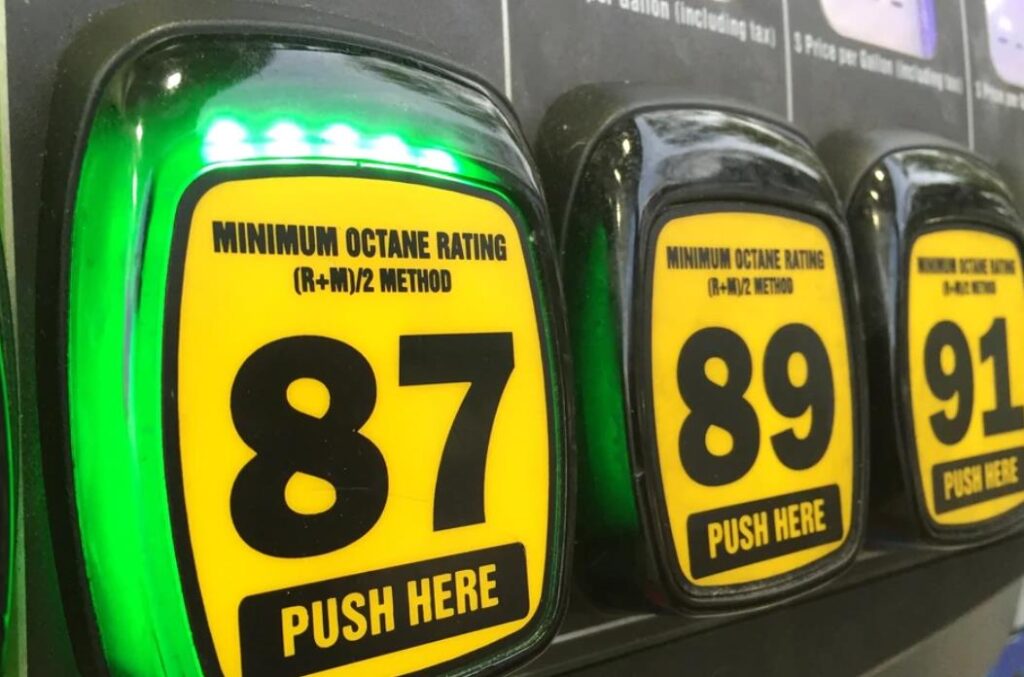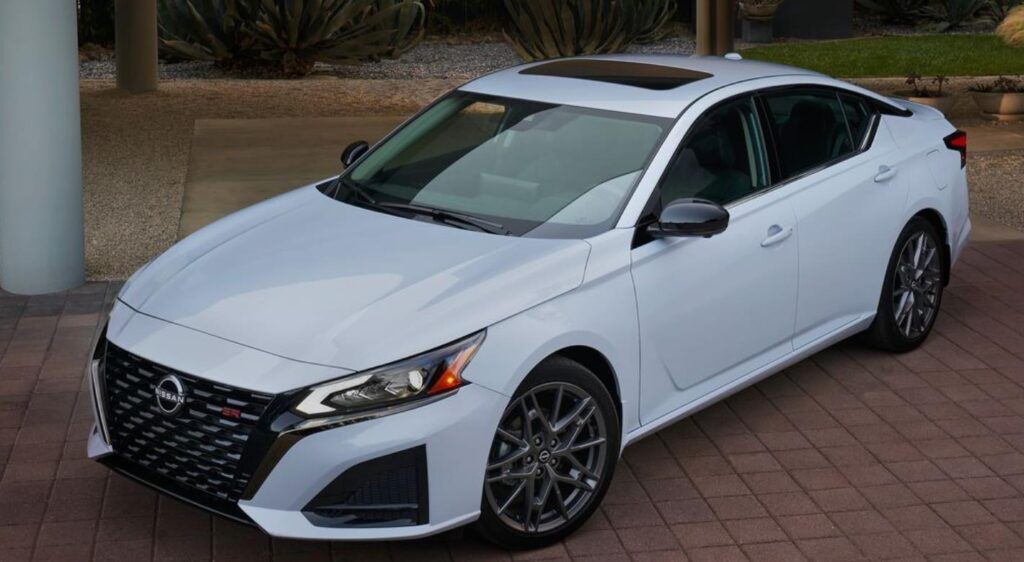What Gas Does A Nissan Altima Take? A Complete Breakdown
If you’re a Nissan Altima owner or planning to be one, you’ve probably wondered, What Gas Does A Nissan Altima Take? This question is crucial for both performance and maintenance. In this article, we’ll dive deep into the type of fuel best suited for your Nissan Altima and why it matters.
Key Takeaways
- Nissan Altima generally uses regular unleaded gasoline.
- Higher trims may benefit from premium fuel for optimal performance.
- Fuel efficiency varies between models and driving conditions.
- Always refer to the owner’s manual for specific fuel requirements.
What Gas Does A Nissan Altima Take?
Most Nissan Altimas are designed to run on regular unleaded gasoline. However, if you own a higher-end model with a turbocharged engine, using premium fuel can enhance performance.

Why Fuel Type Matters?
The type of fuel you use in your vehicle plays a crucial role in several aspects, from engine performance to long-term maintenance costs. Using the recommended fuel type ensures optimal combustion, which directly impacts your car’s horsepower and torque.

Engine Longevity
Using the wrong fuel can lead to engine knocking, reduced efficiency, and even long-term damage. In contrast, the right fuel type can extend your engine’s lifespan, reducing the frequency and cost of repairs.
Fuel Efficiency
The right type of fuel can maximize your vehicle’s miles per gallon (MPG), making your drive more cost-effective. On the flip side, using a lower-octane fuel than recommended can result in poor fuel economy.
Environmental Impact
Different fuels have varying levels of carbon emissions. Using a cleaner fuel can reduce your vehicle’s environmental impact, contributing to less air pollution.
Overall Performance
The type of fuel you use can affect your vehicle’s acceleration, handling, and overall driving experience. Higher-octane fuels often provide better performance but are not always necessary for all types of vehicles.
Cost Implications
While higher-octane fuels are generally more expensive, using the wrong type of fuel can lead to higher maintenance costs in the long run. Therefore, it’s essential to balance the initial cost of fuel with potential long-term savings.
Fuel Efficiency Across Models
Fuel efficiency can vary significantly across different models of the Nissan Altima, and understanding these variations is crucial for making an informed purchase or optimizing your current vehicle’s performance.

Engine Variants
Nissan Altima offers multiple engine options, each with its own fuel efficiency metrics. For instance, the standard 2.5L 4-cylinder engine offers impressive fuel efficiency, while the available VC-Turbo engine focuses more on performance, slightly compromising on fuel economy.
Transmission Type
The type of transmission also plays a role in fuel efficiency. Nissan Altima models equipped with a Continuously Variable Transmission (CVT) generally offer better fuel economy compared to those with traditional automatic transmissions.
Driving Modes
Some Altima models come with selectable driving modes like Sport or Eco, which can either enhance performance or improve fuel efficiency, respectively.
Aerodynamics
The design and aerodynamics of different Altima models can also impact fuel efficiency. Sleeker designs offer less air resistance, contributing to better fuel economy.
Weight and Size
Heavier and larger models generally consume more fuel. Features like sunroofs or larger wheels can add weight to the vehicle, affecting its fuel efficiency.
Technology
Advanced technology features like start-stop systems can also contribute to fuel economy. These systems shut off the engine when the vehicle is stationary and restart it when you’re ready to move, reducing fuel consumption during idle periods.
Technology and Fuel Consumption
In today’s automotive landscape, technology plays a pivotal role in enhancing fuel consumption efficiency. The Nissan Altima is no exception, boasting a range of tech features designed to optimize fuel economy while enhancing the driving experience.
NissanConnect® Services
Nissan’s proprietary NissanConnect® Services offer real-time monitoring of your driving habits and fuel consumption. This system provides insights into how you can adjust your driving style to improve fuel efficiency.
ProPILOT Assist
Nissan Altima’s ProPILOT Assist is an advanced driver-assistance system that can help maintain a consistent speed and safe distance from the car ahead. By automating these aspects, the system can contribute to more consistent fuel consumption, especially in stop-and-go traffic.
Start-Stop Technology
Some Altima models come equipped with start-stop technology that automatically turns off the engine when the vehicle is stationary, such as at red lights. This feature helps to reduce fuel consumption during idle periods.
Eco Mode
Many Altima models offer an Eco Mode that adjusts engine and transmission responses to improve fuel efficiency. When activated, this mode can help you get the most miles per gallon.
Advanced Transmission
The Continuously Variable Transmission (CVT) in the Nissan Altima is designed for optimal fuel efficiency. It continuously changes gear ratios, ensuring the engine operates at peak efficiency, thereby improving fuel economy.
Real-Time Feedback
Some models offer real-time fuel economy feedback on the dashboard, allowing drivers to adjust their driving habits for better fuel efficiency immediately.
Safety Features
While not directly related to fuel, Nissan’s Safety Shield 360 is standard on every Altima. Knowing your car is safe allows for a more relaxed driving style, indirectly affecting fuel consumption.
Fuel Economy Across Different Models
The fuel economy of your Nissan Altima can vary depending on the specific model you own. For example, the 2022 Nissan Altima with a 4-cylinder, 2.5 L engine and automatic variable gear ratios offers a combined MPG of 32. On the other hand, the AWD version offers a combined MPG of 30.

Factors Affecting Fuel Economy
Driving habits and conditions can also affect your car’s fuel economy. For instance, city driving usually consumes more fuel than highway driving.
How to Maximize Fuel Efficiency?
Maximizing fuel efficiency is not just about the type of car you drive but also how you drive it. Here are some strategies to get the most out of your Nissan Altima’s fuel economy.

Regular Maintenance
Regular check-ups, including oil changes and air filter replacements, can significantly improve your car’s fuel efficiency. Dirty air filters and old oil can make your engine work harder, consuming more fuel.
Optimal Tire Pressure
Maintaining the right tire pressure is crucial for fuel efficiency. Under-inflated tires can increase rolling resistance, leading to higher fuel consumption. Check your tire pressure regularly and adjust it according to your owner’s manual.
Smooth Driving
Avoid rapid acceleration and sudden braking whenever possible. Smooth driving not only enhances fuel efficiency but also extends the lifespan of your vehicle’s engine and brakes.
Limit Idling
Idling consumes more fuel than you might think. If you’re going to be stationary for more than a minute, it’s more fuel-efficient to turn off the engine and restart it when you’re ready to move.
Use Eco Mode
If your Nissan Altima comes with an Eco Mode, make use of it. This feature adjusts the engine and transmission settings to prioritize fuel efficiency.
Plan Your Trips
Combine short trips into one longer trip to keep your engine warm and running at a more fuel-efficient temperature. Also, try to avoid peak traffic hours to minimize time spent idling in traffic jams.
Limit the Use of AC and Electrical Accessories
Air conditioning and other electrical accessories can put extra load on the engine, reducing fuel efficiency. Use them judiciously, especially when driving at lower speeds.
Alternative Fuel Options
While Nissan Altimas are generally designed for regular gasoline, it’s worth noting that alternative fuel options like ethanol blends are not recommended unless specified by the manufacturer.
Flex-Fuel Vehicles
Nissan does offer flex-fuel vehicles, but the Altima is not among them. Stick to regular gasoline for optimal performance.
Environmental Impact
Carbon Footprint
The type of fuel you use in your Altima can affect your carbon footprint. Opting for fuels with lower carbon content can be a more eco-friendly choice.
Emissions
Nissan Altimas are designed to meet emission standards, but using the recommended fuel type ensures you’re minimizing your environmental impact.
Cost Implications
Fuel Price Fluctuations
The cost of fuel can fluctuate, affecting your overall driving expenses. Using the recommended fuel can help you avoid any engine issues that could lead to costly repairs.
Long-Term Savings
Using the right type of fuel can result in long-term savings by extending the lifespan of your engine and improving fuel efficiency.
What Happens If You Switch From Premium To Regular Gas?
Switching from premium to regular gas in a Nissan Altima that’s designed for regular unleaded gasoline won’t harm the engine. However, if you own a higher-end model that recommends premium fuel, you might notice a slight decrease in performance and fuel efficiency. Always consult your owner’s manual for specific fuel requirements.

How Much Gas Does A Nissan Altima Take?
The fuel tank capacity of a Nissan Altima varies depending on the model. Generally, the tank can hold approximately 18 gallons of fuel. This allows for long drives without frequent stops for refueling, making it convenient for road trips or daily commuting.

Is Nissan Altima Fuel Efficient?
Yes, the Nissan Altima is known for its fuel efficiency. According to the U.S. Department of Energy, the 2022 Nissan Altima with a 4-cylinder, 2.5 L engine offers a combined MPG of 32. The AWD version offers a combined MPG of 30. These figures make the Altima one of the more fuel-efficient options in its class.

Do Nissans Take 87 Gas?
Yes, most Nissan Altimas are designed to run efficiently on 87 octane, which is regular unleaded gasoline. Using 87-octane fuel is generally recommended for optimal performance and fuel efficiency. Always refer to your owner’s manual for specific fuel requirements to ensure you’re using the right type of gas for your particular model.

Can You Put 89 Gas In A Nissan Altima?
While Nissan Altimas are generally designed for 87 octane, using 89 octane is not harmful. However, it’s important to note that you may not see a significant improvement in performance or fuel efficiency.
If your Altima model specifically recommends premium fuel, then using 89 octane could be beneficial. Otherwise, sticking to 87 octane is usually the most cost-effective choice.
Conclusion
In summary, the Nissan Altima generally takes regular unleaded gasoline, but higher-end models may benefit from premium fuel. Always refer to your owner’s manual for specific fuel requirements. Fuel type is just one aspect; technology and safety features also play a role in your overall driving experience.
Top FAQ’s
How Often Do I Need to Have the Oil Changed in My Vehicle?
Regular oil changes are crucial for maintaining your Nissan Altima’s engine and fuel efficiency. The frequency depends on your driving conditions and the specific model, but generally, it’s recommended every 5,000 miles or 6 months.
What Should I Do If I Think My Nissan Altima Needs Service?
If you suspect that your Altima needs service, it’s best to consult your owner’s manual and schedule an appointment with an authorized Nissan dealer for a thorough inspection.
How Do I Check the CVT Transmission Fluid?
Checking the CVT transmission fluid is essential for the smooth running of your Altima. Refer to your owner’s manual for detailed instructions or consult a Nissan service professional.
How Often Should the Brake Fluid Be Changed on My Vehicle?
Brake fluid should be checked regularly and replaced as needed. Generally, it’s advisable to change the brake fluid every 20,000 miles or 2 years to maintain optimal performance.
How Do I Open the Gas Tank?
Opening the gas tank in a Nissan Altima is straightforward. Locate the fuel door release lever, usually found on the driver’s side floor, and pull it to open the fuel door.

Welcome to the exhilarating world of Matt Rex, a professional car racer turned renowned vehicle enthusiast. Immerse yourself in his captivating blog as he shares heart-pounding adventures, expert reviews, and valuable insights on cars, trucks, jets, and more. Fuel your passion for speed and discover the beauty of vehicles through Matt’s engaging stories and meticulous expertise. Join the ever-growing community of enthusiasts who find inspiration and expert advice in Matt Rex’s blog—a digital hub where the thrill of speed meets the pursuit of knowledge.







